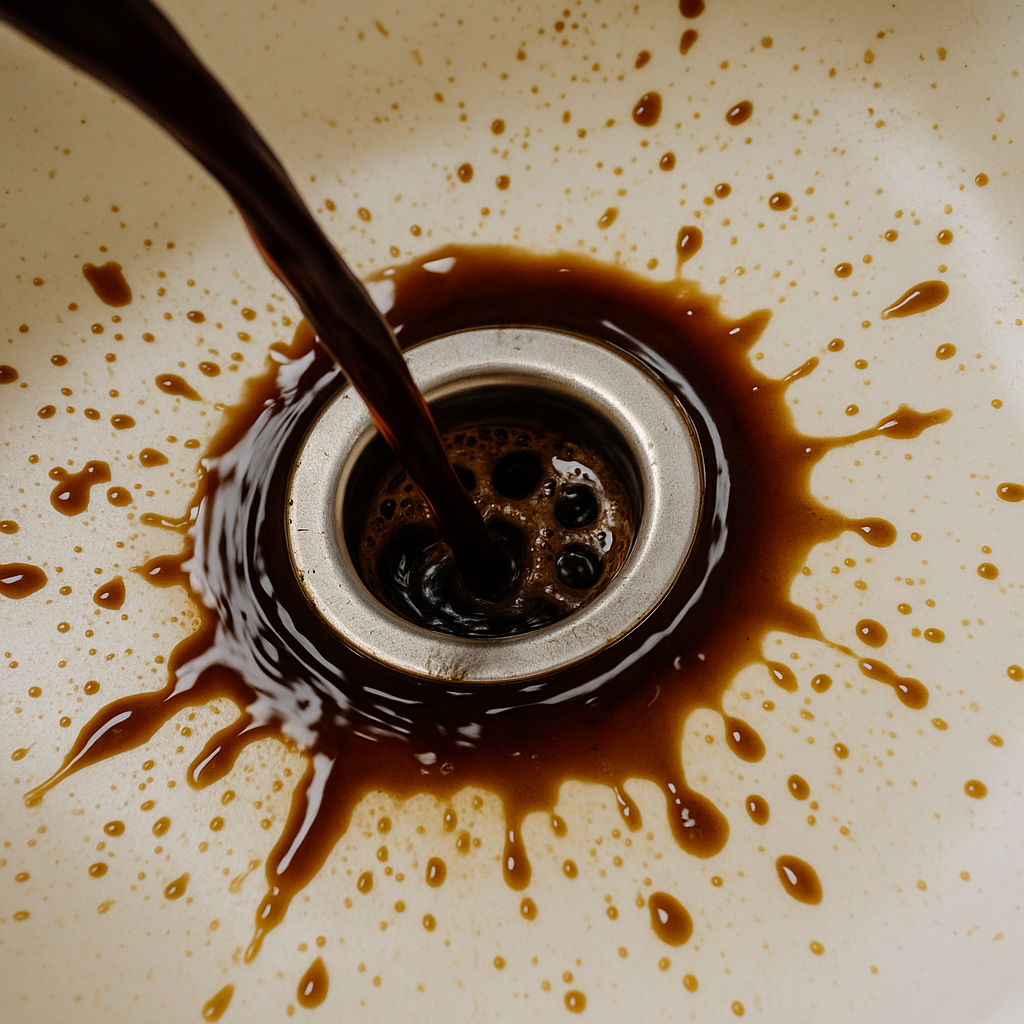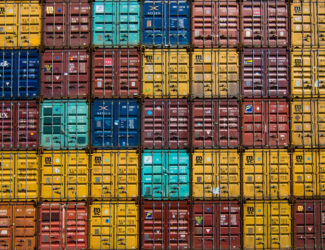
Scientists Urge People to Stop Pouring Coffee Down Drains
London – Qahwa World
A recent incident in London, where a woman was fined £150 for pouring coffee down a drain, has sparked public debate about whether such actions could harm the environment. Although the fine was later withdrawn, experts say the issue highlights a larger problem.
Every day, around 98 million cups of coffee are consumed in the UK and 2 billion globally. The remains of those drinks—often poured down sinks or street drains—can accumulate and impact rivers, lakes, and aquatic life.
The Hidden Impact of Coffee Waste
Coffee contains hundreds of chemical compounds, including caffeine, sugars, milk residues, and organic materials. Among these, caffeine poses the greatest concern. It does not easily degrade, is now considered an emerging contaminant, and has been detected in lakes and rivers worldwide since at least 2003.
Even decaffeinated coffee is not harmless. When poured into drains, it lowers the pH of water and releases organic compounds that consume oxygen as they decompose. These effects can promote algal blooms and deprive aquatic life of the oxygen it needs to survive.
Wastewater treatment plants can remove caffeine with efficiencies ranging between 60% and 100%, depending on their design, season, and temperature. However, this means a significant portion can still reach waterways. During heavy rainfall, untreated wastewater may also overflow directly into rivers, further compounding the problem.
One global study found caffeine in over half of 258 rivers across 104 countries, indicating that the issue extends far beyond the UK. Research shows even small concentrations of caffeine can disrupt the metabolism, growth, and movement of aquatic organisms.
What Should (and Shouldn’t) Go Down the Drain
Experts warn that street drains are meant only for rainwater, not for waste liquids. Pouring coffee, oils, detergents, or paints into drains allows these substances to flow straight into rivers and seas.
Similarly, household sinks—connected to the same combined sewage network—should not be used for disposing of liquids like coffee or food-based waste. Besides the environmental risk, coffee grounds can also clog household plumbing.
Sustainable Alternatives for Coffee Waste
Instead of pouring leftover coffee down the drain:
Compost it: Coffee grounds enrich compost and can safely decompose in food waste systems.
Use as plant feed: Diluted coffee water can serve as a mild fertilizer if used sparingly.
Dispose responsibly: Place coffee grounds or small amounts of liquid in household waste bins if composting is not available.
Reduce waste: Brew only as much coffee as you intend to drink.
A Shared Responsibility
Improving river and coastal health requires policy reform and investment, but experts stress that individuals also play a role. Simple actions—like keeping coffee out of drains—can collectively make a measurable difference in protecting ecosystems.
“We are all part of how the water system works,” says Kevin Collins, Senior Lecturer in Environment & Systems at The Open University. “By changing small habits, we can help keep coffee out of our rivers and out of our environment.”



